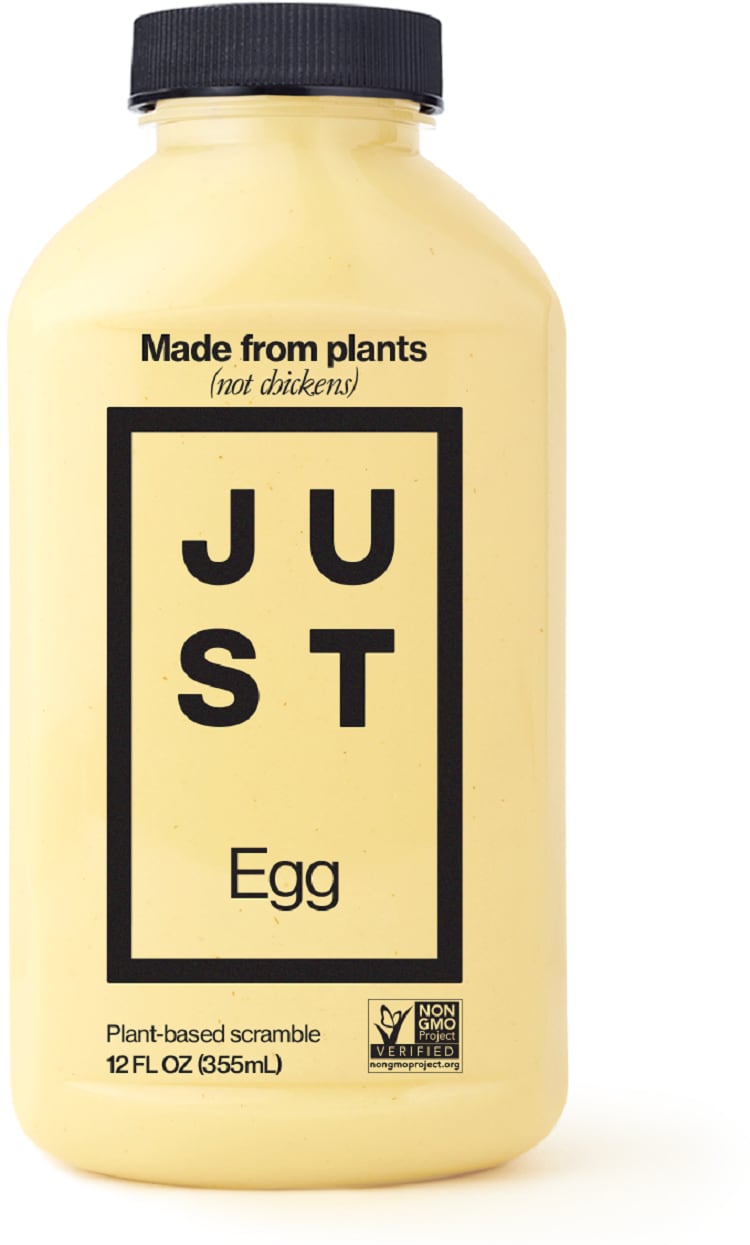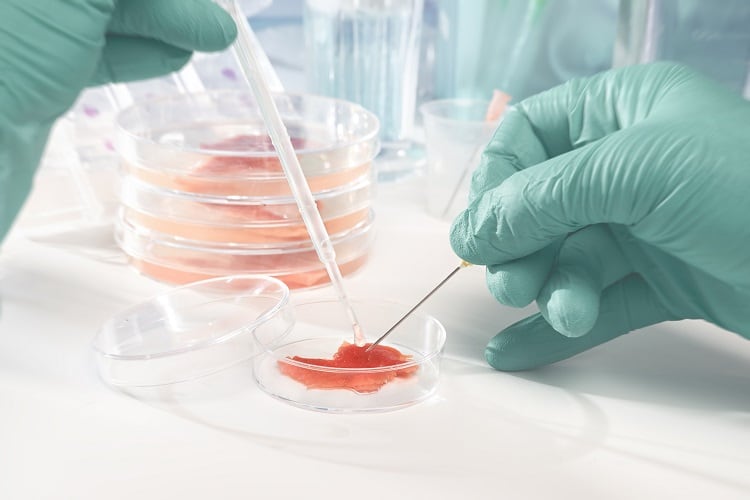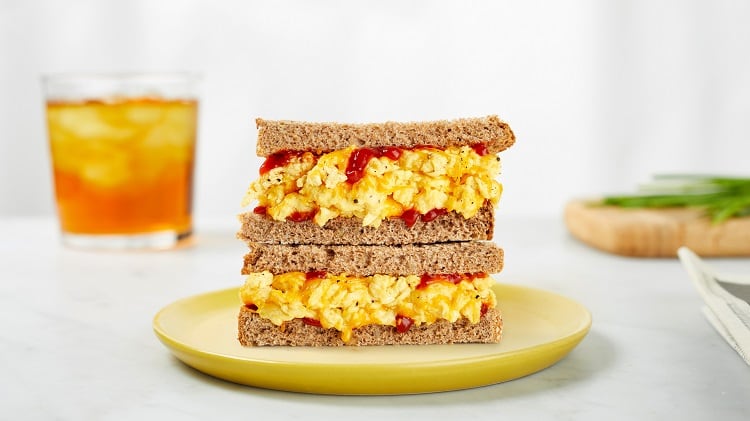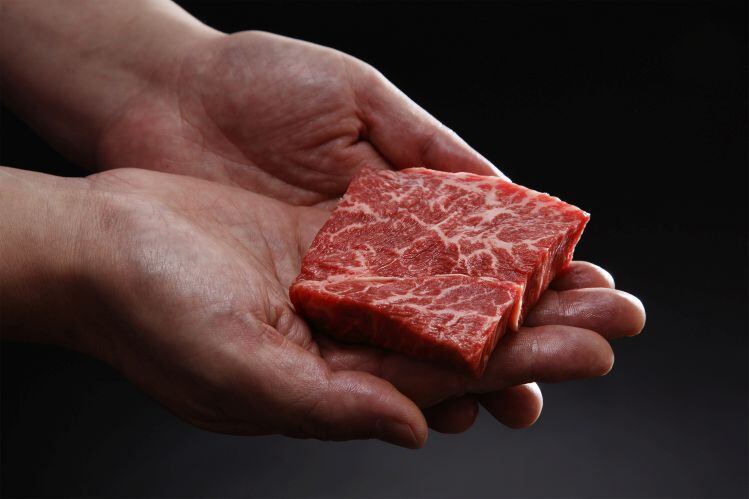JUST, Inc (formerly Hampton Creek) sells its plant-based scrambled egg alternative Just Egg across the US. Since first hitting retail shelves in November 2018, the product has replaced the equivalent of 16 million conventional eggs, and counting.
With international expansion ingrained in JUST’s business strategy, the company is now preparing to enter the European market, and beyond.
Just Egg is preparing to undergo the EU novel foods regulatory process, which senior sustainability and sourcing manager Udi Lazimy anticipates will be completed within the next 60-90 days. Entry into Europe is “expected by about Q2 2020 in Europe”, he revealed at this week’s Future of Nutrition Summit in Paris.
Mung bean protein isolate
The main source of protein in JUST’s liquid egg replacement comes from the mung bean. The company uses a patented extraction technology – which Lazimy said ‘doesn’t denature the protein’ – to produce a 95% protein-rich powder.
“We discovered that the protein in mung bean has many of the same amino acids as eggs, especially the amino acids required to perform gelation and emulsification,” he explained, which helps create the curdling texture present in omelettes and scrambled eggs.
JUST’s product contains no cholesterol, ‘very low’ saturated fat, and an overall similar protein content to that of real eggs, we were told.

Indeed, one serving of Just Egg contains 5g protein, with a conventional 150g egg containing around 6g. “It looks, tastes, and feels exactly like real eggs,” Lazimy told delegates at the pre-FiE event.
Manufacturing and distribution
Once JUST has produced the mung bean protein isolate, the powder is transported to downstream partners for manufacturing and distribution into retail and foodservice. These partners then add additional ingredients, including water, canola oil, soy lecithin, gellan gum, and natural turmeric extractives for the colour, before distributing the product through their channels.
In Canada, for example, JUST has partnered with one of the country’s largest egg producers. In Europe, the firm has done the same with Italy-headquartered egg producer Eurovo Group, which will manufacture and distribute Just Egg once marketing authorisation is granted.
This sales model is ‘working well’, said Lazimy, who confirmed the company is hoping to employ the same strategy within Asian markets. Unlike Europe, Just Egg has already received regulatory approval in China – a country Lazimy said is JUST’s ‘biggest focus market by far’.
“The demand for eggs and animal protein in general is going through the roof, but in China, it’s a whole other [story],” he continued, suggesting that China’s growing middle-class is increasing demand for animal-derived foods. “And that is why China is our number one priority. We have 10 people [working] full-time in Shanghai focused on distribution into China,” the sustainability expert told delegates.
Plant-based for the many
Underlying JUST’s move into China is its philosophy to bring plant-based products to the masses. Doing so could help ease the strain placed on the planet’s limited natural resources by conventional agri-food production, Lazimy argued.
Indeed, compared to conventional egg production, Just Egg uses 98% less water, requires 93-94% fewer CO₂ emissions, and needs 86% less land.
“The whole premise of the company is to bring products to market that are not only accessible to people who shop at Whole Foods – or at any high end, premium, organic [retailer] – but also to a single mother in Birmingham, Alabama (hometown to JUST founder Josh Tetrick). Our mission is to make food accessible to all people.”
JUST’s goal, therefore, is to produce a scrambled egg alternative that is cheaper to buy than its conventional counterpart. While the company is not there yet, Lazimy revealed the firm has ‘identified a pathway to get there’.
In order to be as competitive as real eggs, two aspects of Just Egg’s production must change. Firstly, the price of mung beans needs to reduce, which could be impacted by scale, and yield efficiencies in the manufacture of the mung bean protein isolate needs to improve. “[These are] two things that are going to bring our price down to competitive price points,” we were told.
JUST could recuperate some of its mung bean cost by upcycling residual material from the extrusion process. The by-product is largely made up of starch, which is currently used as animal feed. However, the firm sees potential in such a side stream, said Lazimy.
“We are not in the starch business yet…but it is key to our future. In the next year, part of our strategy is to monetise the starch,” he elaborated, adding that JUST is currently seeking partners for starch utilisation.

In other alternative protein categories, JUST is also developing cultured meat made from isolated stem cells. These cells are grown in a bioreactor, enabling the company to “make a real meat product without killing or harming any animals”, the sustainability expert told delegates.
“The challenge now is scale and the cost of the media,” he revealed. JUST is working on a plant-based media to solve one of these issues, and expects to be one of the first few to bring cultured meat – in this case, chicken – to market.
The company is also developing cell-cultured Wagyu beef products with industry partner and Japanese Wagyu producer Toriyama. According to the agreement, JUST will grow the cell-based meat using Toriyama’s cell lines, and meat and seafood supplier Awano Food Group will market and sell the meat.





